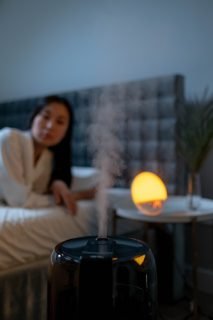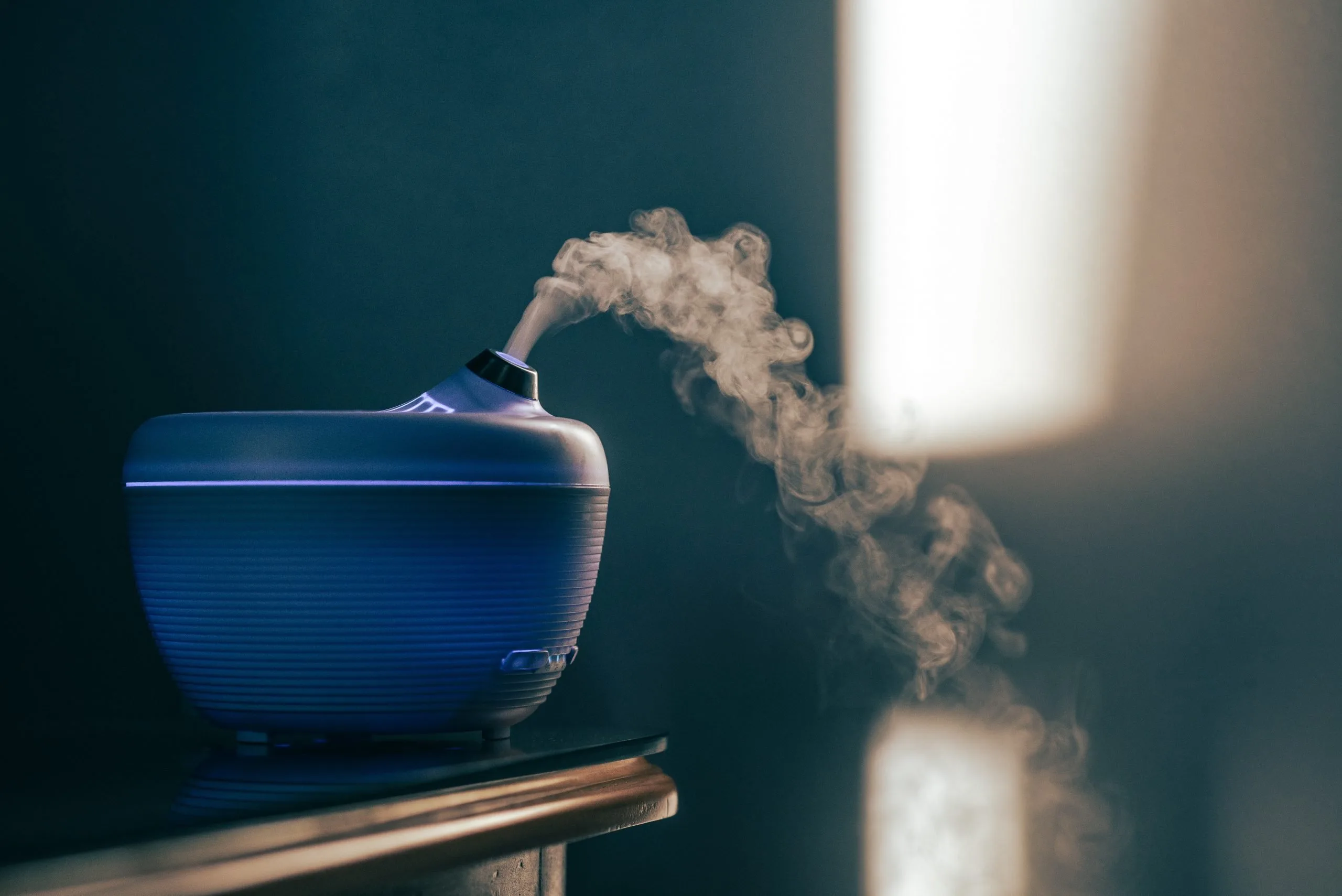Humidifiers, particularly mini humidifiers seem to be everywhere. They’re all over TikTok and Instagram in recommended purchases. Many of us struggle with allergies, particularly during the summer and winter, which is often the cause of dry skin. We often tend to think that if we use an air conditioner, the air should be healthy for us. But air conditioners tend to remove moisture from the air which can in turn cause dryness even if it does reduce allergies. Could putting a humidifier in your bedroom and/or office help? What are humidifiers, are they any good and are they something you should invest in?
What is a humidifier?

Photo by cottonbro from Pexels
Essentially, humidifiers are designed to add moisture to the air. The reason for doing this is usually because of particularly dry conditions. Dry conditions in a house or even a particular room can cause irritation in multiple parts of the body. The most common irritation as a result of dryness in the air is dry skin, lips, and throat as well as a runny nose. Using a humidifier can be particularly beneficial for those with sinus conditions and can even ease the symptoms of colds and flu. Having said this, overuse of humidifiers or using them incorrectly can cause respiratory problems.
How can they help?
Anyone who has experienced respiratory issues may well be acquainted with humidifiers. Generally, they are useful for particularly dry environments as well as for people who struggle with allergies. According to Medical News Today, they may also be useful for the treatment and prevention of
- Dry or irritated skin
- Allergies
- Coughs
- Bloody noses
- Cracked, dry lips
- Dry and/or irritated eyes
- Sinus headaches
- Post-nasal drip
- Dryness of the throat
Types of humidifiers
Not all humidifiers are created equal, there are different types of humidifiers all of which are designed to serve different purposes. They also tend to come in different sizes and are thus designed to meet different needs. The most popular of these tend to be miniature humidifiers. These are also often described as portable or personal humidifiers. These are best if you suffer from seasonal allergies or dryness and need to travel with them. In general, according to Healthline, there are five core types of humidifiers:
Central humidifiers
These are generally built directly into the home’s air conditioning or heating systems. Notably, they are the most expensive type of humidifiers but are the best if multiple members of the household struggle with skin dryness, irritation, or allergies that are brought on by dryness.

Photo by Eva Elijas from Pexels
Central humidifiers also allow for humidity to be added to the entire house rather than just a small section of it. They are also less dangerous than smaller, personal humidifiers. This is because they don’t emit steam which eliminates the risk of burns.
Evaporators
Not as expensive as central humidifiers, evaporators use a fan to drive air through a moisture-filled filter. They are generally bigger units but are still only able to humidify one room at a time. Another issue with evaporators is that they can put too much moisture into the air. This does pose a risk for people with asthma as it does increase the risk of mold growing in and around the room in which the evaporator is being used.
Impellar humidifiers
These work with the aid of high-speed rotating blades. They are generally far more affordable and this makes them more popular. Another aspect of their popularity is the aspect of child safety. They create only a cool mist which means that they are not a risk. When it comes to burns. The downside to this is that, once again, they are limited to single rooms. Another issue is that they can cause breathing issues for people with asthma or allergies.
Steam vaporizers
These are powered by electricity, essentially they work by heating water in the tank before cooling it and expelling it into the air. These are the most popular because they are the most portable and the least expensive. One downside is that they can be a risk for causing burns. Thus, they aren’t the best choice if you have children in the house.
Ultrasonic humidifiers
These produce mostly cool-mist, but there are also versions that produce a warm mist. They work using ultrasonic vibrations and vary in. Both size and price make them a good option for most homes. The cool mist versions are also child-friendly.
Is adding humidity a good idea

Photo by Chris F from Pexels
In particularly dry spaces, especially those that are air-conditioned, generally, the benefits outweigh the negatives. However, it is important not to overuse them as they can worsen respiratory conditions like asthma. According to Healthline, too much humidity in the air can also encourage dust mites, mildew, mold, and bacteria.
The best way to maintain safe levels of humidity is to make sure that you aren’t overusing humidifiers. The Mayo Clinic recommends that humidity should stay between 30 and 50 percent. Hygrometers can be installed in homes to monitor humidity levels and some central humidifiers come with them built-in.
Final thoughts
As long as you use them wisely and make sure that they are clean before use, there. Shouldn’t be a problem. In fact, they can be highly beneficial for dealing with allergies and even colds and flu. If you have children make sure that the humidifiers are either safe for children or in an out-of-reach place so that they don’t get burnt. If you struggle with asthma and allergies and can afford it, a central humidifier with a hygrometer built-in is probably the best bet.
References
https://www.healthline.com/health/humidifiers-and-health#_noHeaderPrefixedContent
https://www.medicalnewstoday.com/articles/322228#six-humidifier-uses-and-their-benefits
https://www.healthline.com/health/allergies
https://www.mayoclinic.org/diseases-conditions/common-cold/in-depth/humidifiers/art-20048021





![women [longevity live]](https://longevitylive.com/wp-content/uploads/2020/01/photo-of-women-walking-down-the-street-1116984-100x100.jpg)









